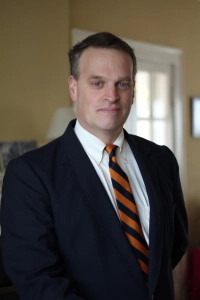Help! Somebody call Pope Francis! I can’t find the official Latin edition of the principal text for understanding the role of Sacred Music in the Liturgy.
You ask,
“what is the fundamental text about the role of Sacred Music in the Liturgy?”
That is an excellent question. Here are three words which, by their mellifluous sound, indicate the musical nature of what they signify, to wit,
“Tra le Sollecitudine”
Try saying that 10 times fast.
One would think that the Vatican website would have it, but I checked and only found the English, Italian, Spanish and Portuguese translations.
Here is a taste of this important text in English,
Sacred music, being a complementary part of the solemn liturgy, participates in the general scope of the liturgy, which is the glory of God and the sanctification and edification of the faithful. It contributes to the decorum and the splendor of the ecclesiastical ceremonies, and since its principal office is to clothe with suitable melody the liturgical text proposed for the understanding of the faithful, its proper aim is to add greater efficacy to the text, in order that through it the faithful may be the more easily moved to devotion and better disposed for the reception of the fruits of grace belonging to the celebration of the most holy mysteries.
The immediate question that I have is “from what word does complementary translate?” Well- I happen to know. The question was purely rhetorical. The Latin word is “integrans.” In other words the English translation should read,
“Sacred music, being an integral part of the solemn liturgy…” (parte integrans)
How do I know this? Well – just take a look at the Italian, Portuguese and Spanish texts.
- “La musica sacra, come parte integrante della solenne liturgia, ne partecipa il fine generale…(Italian)
- “Como parte integrante de la liturgia solemne, la música sagrada tiende a su mismo fin,…” (Spanish)
- A música sacra, como parte integrante da Liturgia solene, participa do seu fim geral…(Portuguese)
I am not saying that I know any of these languages, but after staring at these sentences for about half an hour, I couldn’t help but to notice certain similarities.
But I also have an ace in my back pocket, because I happened to stumble across this:
CHIROGRAPH
OF THE SUPREME PONTIFF
JOHN PAUL II
FOR THE CENTENARY
OF THE MOTU PROPRIO
“TRA LE SOLLECITUDINI’
ON SACRED MUSIC
and Saint John Paul II quotes the very line that I am talking about!
…the special attention which sacred music rightly deserves stems from the fact that, “being an integral part of the solemn Liturgy, [it] participates in the general purpose of the Liturgy, which is the glory of God and the sanctification and edification of the faithful”[3]
Q.E.D.
But, why oh why does the English translation have to say complementary?!?
The problem with the word complementary is firstly, that it sounds exactly like complimentary and is therefore often confused with it. If Sacred music is complimentary, that means its free…like drinks at a fundraiser. And I suppose that sacred music does appear that way at Mass. At my parish, the daily Mass is ordinarily celebrated without music. But on the weekend there is music and therefore appears to be “complimentary.” I suppose the pastor could send out invitations to Mass that said something like,
Come to Holy Mass this Saturday evening
or to any of our regularly scheduled Masses on Sunday.
All Music will be Complimentary!
Although from the stand point of the pastor the music is most definitely not complimentary! Just think of the price-tag attached to purchasing all those paper back Missallettes and Music aids. Think of the upkeep of that organ! Not to mention the price-tag that is attached to the pale wan Music Director and even perhaps the bespectacled organist (most of whom do not live on air the last time I checked).
Now the other problem with the word complementary is that the word makes sacred music’s role something akin to the role that a cherry plays atop an Ice Cream Sundae.
As we all know, one is able to have a perfectly acceptable Ice Cream Sundae without a cherry. An Ice Cream Sundae without a cherry is a perfectly acceptable Ice Cream Sundae. Nothing is missing that belongs to its own definition qua Ice Cream Sundae.

Sundae with a Cherry
Sundae without Cherry
Secondly, even if we use the word complementary to mean “completing,” which is what it means, we still tend to use the word in a weaker sense such as “enhancing.” Thus we might say that “the frosting complements the cake” or “bread is a good complement to the dinner” or “flowers complement the dinner table.”
If we were all to agree that “complementary” means strictly “to complete” then I wouldn’t mind. Because then the phrase
“Sacred music, being a complementary part of the solemn liturgy…”
has more ‘bite’ to it. The phrase would indicate to us that Sacred music is something that is necessary- necessary that is to anyone who would like a complete liturgy.
Now I know exactly what you are thinking. You are thinking,
“Well certainly one is able to have Mass without music. Why…as a matter of fact all those Irish priests in 1709 had to say Mass in secret without music because of the British “penal act” which attempted to force priests to take an oath etc. etc.”
I beg your pardon, but before you go on and lecture me about Irish history and Queen Anne and penal acts and all sorts of things that will obscure the argument, allow me to say that you have succeeded in nothing but making my point even clearer!
An integral part is not the same thing as an essential part.
For example one is able to have a man without hair on his head. Hair is not an essential part of a man. But would we say that a hairless man has all the parts that make up a complete man? No, a man should have hair! Every man is supposed to have hair by nature! And furthermore, I don’t care about that article in the WSJ about how bald men make more money!
Ok, so now you are thinking “Yes maybe a bald man is in fact a complete man” and now after reading the article in the WSJ you are probably contemplating a trip to the barber.
Well what if a man was lacking an arm? Do we have a man? Yes we do, because an arm is not an essential part of a man.
But we would still admit, with regret, that an armless man appears to be lacking something which he should have. There is a deficiency that will no doubt have to be made up for in some other way. An armless man wants an arm, much more than, say, he wants a bow tie or a top-hat.
An integral part is the kind of part that allows us to have a complete thing, while noting that if something is missing its integral parts we might still have the thing- but not in its completeness.
On the other hand if a man lost his head, we would have to say that we really do not have the man anymore. The head is something more than an integral part. I might venture that the head would appear to be an essential part. A sine qua non for having the thing itself.

(In my humble opinion The “Headless Horseman” was not really a man at all insofar as he was lacking an essential part!)
I am not a doctor, but I bet a doctor would be able to make a decent list of essential parts of the human body and another list of integral parts.
The point is that integral parts, while not being essential, are still necessary if one wishes to have the whole of what a thing is.
If you think there is no difficulty for a person to lack eyes, or arms, or legs, or even eyebrows, or fingernails or whatever…then go ahead. You will also claim that it is fine for a mass to lack sacred music.
But the truth is that something is missing which should be there.
As Pope St. Pius X taught, and was reaffirmed by the council fathers in Sacrosanctum Consilium, and his teaching was reiterated recently by Saint John Paul II.
“112. The musical tradition of the universal Church is a treasure of inestimable value, greater even than that of any other art. The main reason for this pre-eminence is that, as sacred song united to the words, it forms a necessary or integral (necessariam vel integralem) part of the solemn liturgy.”
Sacred music is an integral part of the solemn liturgy.






Let it not be left unsaid that Tra Le Sollecitudine was written, surprisingly, in Italian, and it is up to Pope Francis to bring about an official Latin translation for the ages.
Amen to that!